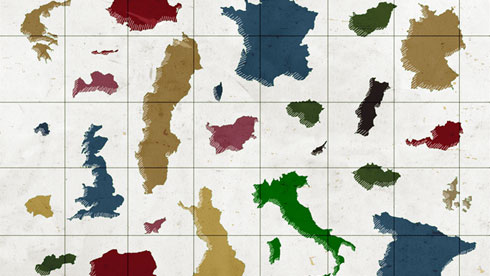I have to start by correcting my friend Niall. He’s wrong about the phone number. There is a phone number. The phone number is Catherine Ashton’s. You call the phone number and then you get a computer voice: for Germany, press 1; for France, press 2 — that tells you where Europe is at.
Let me say something else. I think Europe was a wonderful idea. After all, Zeus, the god of gods, risked his marriage by running off with Europa — a woman he was smitten with. And Ovid, the Roman poet, sings, “Till in the open sea he bore his prize ... her right hand grasped a horn, the other leant upon his back.”
Europe was also a wonderful idea several eons later when it decided to unify after the two most murderous wars in history. What a magnificent story. First, six nations got together by integrating coal and steel. Next, they slowly created a common market for goods, capital services, and people; democracy followed à la Cohn-Bendit with a European parliament, and finally they introduced the euro, which meant no more francs, pesetas, and drachmas. Now there are 27 member states. The euro reigns from Portugal to the borders of Poland. Now, what would come next? Of course, the United States of Europe.
[German politician Daniel Cohn-Bendit says ‘Yes!’ in the audience]
Wrong! Europe is crumbling before our eyes. The grandest experiment since the 13 American colonies became E Pluribus Unum now faces its most deadly crisis. Why has this seemingly inexorable march of progress ground to a halt?
Conquering national sovereignty
Think about integration as a mountain climb in the Rockies or on the Alps. In the beginning or in the foothills it is nice and easy. As we rise, the ascent gets tougher and the air gets thinner. Finally we reach the sheer cliff, the north face of the Eiger, in Switzerland, for example — a cliff that forms the core of national sovereignty.
This is where we are today, with the euro, our proudest achievement, about to bury us. We have gone too far, so what do you do next? There are only three ways: you retreat, stop, or attack. Do you attack the summit and climb to the United States of Europe? “Just look at your party of 17,” this mountain growls, “all stragglers, miscreants, cripples, free-riders.” And because this is a very educated mountain, he would add that there is no true unification without war, where the strongest element forces the rest into a single state.
That is what happened in Italy and Germany, and of course, [...] in the United States, where the civil war was actually a war of national unification. There will be no such war in Europe, and thank God for that. There is no Bismarck or Lincoln in Europe’s future. And Frau [Angela] Merkel is no Bismarck, of course.
Tenacity of the nation state
But what does this deadly crisis tell us? It says that you can’t go to the summit unless you are both willing and able. Except you are neither of those things and nor will you ever be because: (a) you can’t and will not give up the biggest chunk of democratic sovereignty, which is the power to tax and spend; and (b) you don’t belong in the same climbing party to begin with. Just two or three or four of you have the discipline and the stamina to keep going. The rest are overweight, lame, or out of breath.
So let’s bring it down from the mountain metaphor. The political point is that Europe is broke, and Germany neither wants nor is able to pay for the rest. Even France is broke. Furthermore, the stragglers don’t want to go back to camp, to get into shape through a very painful domestic regimen that has already killed so many of their governments.
The deepest problem is the stubborn tenacity of the nation state, which will not submit when the core of its sovereignty is at stake. Money, as the Germans say, is where a friendship stops, and so does integration. The EU is not cavorting in the foothills anymore. It’s facing the north face of the Eiger.
So is Europe history now? We don’t know yet. But we do know one thing: that the experiment has failed in one sense because that wonderful dream from the 1950s — of up, up, and away — has collided with the nasty reality of the nation-state that will not fade away. And if truth be told, how many Frenchmen, Italians, Germans, Poles, and so on, will want to part with 2,000 years of history? Who wants to be ruled from Brussels rather than from his or her own capital?
Let me conclude with a prayer. Let’s pray that the inevitable crash of the euro, the most ambitious part of the experiment, will not bury the rest of the union. And let’s plead with Zeus to save Europa from the angry seas and set her down at a cozy little harbour because Europe cannot conquer the sea that is the nation-state. But if she drowns, Canada and the United States will not flourish. Amen. Thank you.
This article is the transcription of Josef Joffe’s contribution as a speaker in the Munk Debate on “Has the European experiment failed?” It was part of the Il Sole 24 Ore’s magazine IL’s cover story on “Europe under attack”, issued in April 2013.
Was this article useful? If so we are delighted!
It is freely available because we believe that the right to free and independent information is essential for democracy. But this right is not guaranteed forever, and independence comes at a cost. We need your support in order to continue publishing independent, multilingual news for all Europeans.
Discover our subscription offers and their exclusive benefits and become a member of our community now!












